Episodes
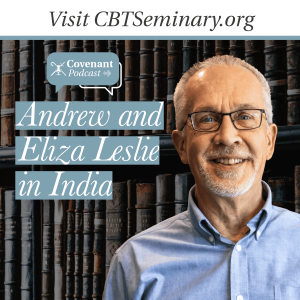
Thursday Jun 05, 2025
Andrew and Eliza Leslie in India | Particular Pilgrims
Thursday Jun 05, 2025
Thursday Jun 05, 2025
"The Leslies grew in love for one another and appear to have sincerely rejoiced at the opportunity to serve God in India, despite the sacrifices this involved. Their first year passed relatively quietly with no children, but with much learning and usefulness."
For more information about CBTS, visit CBTSeminary.org
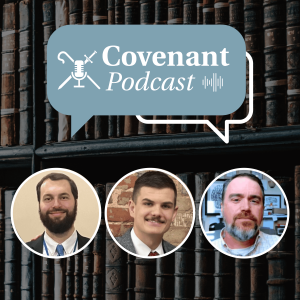
Tuesday Jun 03, 2025
Gill Group #5 - Of Election
Tuesday Jun 03, 2025
Tuesday Jun 03, 2025
Pastors Doug Barger, Dewey Dovel, and Ken Glisch discuss the doctrine of election from John Gill's "The Cause of God & Truth."
For more information visit: https://cbtseminary.org
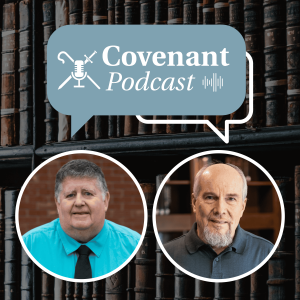
Tuesday May 27, 2025
Learning from Failures and Regrets in Ministry | Pastor's Inbox
Tuesday May 27, 2025
Tuesday May 27, 2025
Feeling Like You've Messed Up in Ministry? These Pastors Get It and Here's What They Learned!
For more information visit: https://cbtseminary.org
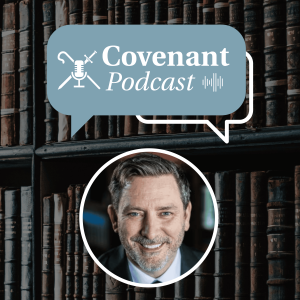
Tuesday May 20, 2025
Christ Exalted with Jeffrey Johnson
Tuesday May 20, 2025
Tuesday May 20, 2025
"I do not know of any other book that exalts Christ Jesus more clearly in the salvation of sinners than this little book by Hanserd Knollys. The treasure of this book is Christ." - Jeffrey D. Johnson
Order your copy here: https://freegracepress.com/products/christ-exalted?_pos=1&_sid=5907352c0&_ss=r
Check out the rest of the Free Grace Press Baptist Reprint series here: https://freegracepress.com/collections/baptist-reprints
Register for the upcoming Greek course taught by Dr. Timothy Decker here: https://cbtseminary.org/register/
For more information about CBTS visit: https://cbtseminary.org
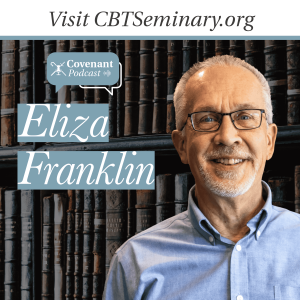
Thursday May 15, 2025
Eliza Franklin | Particular Pilgrims
Thursday May 15, 2025
Thursday May 15, 2025
"We know little else about Eliza’s early childhood, but I have a careful portrait of her drawn about age 18 by William Thomas Fry, an important English engraver. It shows a small, attractive young lady with elaborately curled hair sitting in a chair holding a letter. She bears a pleasant resemblance to her father."
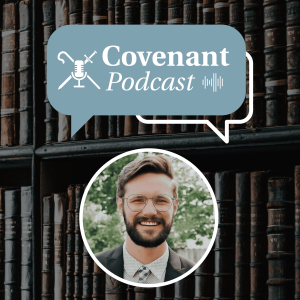
Tuesday May 13, 2025
True Worship with CBTS Grad, Landon J.
Tuesday May 13, 2025
Tuesday May 13, 2025
What makes worship pleasing and acceptable to God? All Christians know that God ought to be worshipped, but some do not know why and how. Through His Word, God instructs us in how He wants to be worshipped. This introductory book is designed to walk through what true worship is, what worship should include, and how to identify true worship in a church.
Get your copy here: https://www.amazon.com/True-Worship-Returning-Biblical-Understanding-ebook/dp/B0DR4V9198/ref=sr_1_1?crid=3GSYRMWYGG07V&dib=eyJ2IjoiMSJ9.miTyckYKdeZpBtBMLl8r5g9sLiS7kLLA2xW6flgZSMjGjHj071QN20LucGBJIEps.AYTX4YRYJSuOfm9nszARJgebnmr8nrDCgbdrHbZ1GZ4&dib_tag=se&keywords=Landon+Jones+true+worship&qid=1741033360&s=books&sprefix=landon+jones+true+worship%2Cstripbooks%2C89&sr=1-1
For more information visit: https://cbtseminary.org
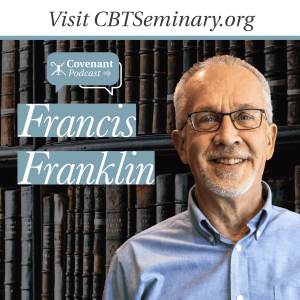
Thursday May 08, 2025
Francis Franklin | Particular Pilgrims
Thursday May 08, 2025
Thursday May 08, 2025
Francis Franklin, father of Eliza, was born on December 9, 1772 in Mursley, Buckinghamshire. He was the youngest of seven children; his parents being William and Mary Franklin. Just before he turned 15 he moved to Oxford to apprentice as a cabinet and chair maker to his cousin, John Payne. He regularly attended the parish church, as he had been raised, but found the Baptist ministry of James Hinton to be more useful. He also took up the habit of reading, especially George Whitefield’s sermons.For more information, visit CBTSeminary.org
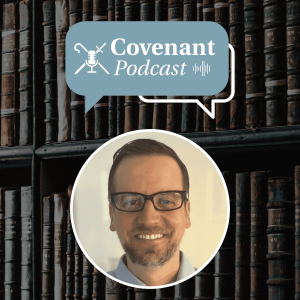
Tuesday May 06, 2025
A Critique of Gentle Parenting with Justin Miller
Tuesday May 06, 2025
Tuesday May 06, 2025
Dr. Justin Miller is the author of this newly released book: The Not So Loving Side of Gentle Parenting: A Biblical Plea to Parents.
A new Trojan horse took baby steps into the nursery and has now launched big steps into the church family—“Gentle Parenting.” It is likely this novel parenting philosophy has been adopted by families in your church body. This book will (1) characterize and define what Gentle Parenting is (2) critique it by comparing and contrasting it with the Holy Scriptures, (3) call believers back to raising their children in truth, and then (4) carefully consider the essential need to rely solely upon the sufficiency of Scripture in parenting. Parenting is a blessed stewardship believers are called to carry out for God’s glory in His Word.
For more information about CBTSeminary, visit CBTSeminary.org
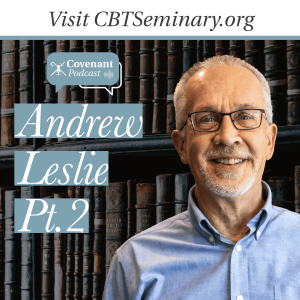
Wednesday Apr 30, 2025
Andrew Leslie Pt.2 | Particular Pilgrims
Wednesday Apr 30, 2025
Wednesday Apr 30, 2025
"It is clear from his letters that Andrew Leslie was marked for India as a missionary after graduation from Bristol Academy. But before he could go there were several things he needed to do."For more information about CBTS, visit CBTSeminary.org

Tuesday Apr 29, 2025
Balancing Friendships with Unbelievers | Pastor's Inbox
Tuesday Apr 29, 2025
Tuesday Apr 29, 2025
Should believers make friendships with unbelievers? If so, how should they go about this? What principles ought they remember so they are not making themselves “friends with the world?” (Jam. 4:4).For more information, visit CBTSeminary.org
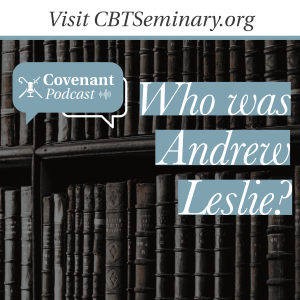
Thursday Apr 24, 2025
Andrew Leslie | Particular Pilgrims
Thursday Apr 24, 2025
Thursday Apr 24, 2025
"The next person I want to present to you is Andrew Leslie. I’m fairly certain none of you know that name. But I hope that after several episodes, his “hidden life” and “unvisited tomb”, to use George Eliot’s phrases from the last line of her novel “Middlemarch”, will be honored."
For more information, visit CBTSeminary.org
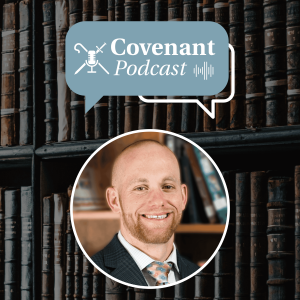
Tuesday Apr 22, 2025
Francis Turretin's Natural Theology with John Sweat
Tuesday Apr 22, 2025
Tuesday Apr 22, 2025
In this conversation with Pastor John Sweat, we discuss Francis Turretin's Natural Theology.
Sweat explains how Turretin distinguishes between False Natural Theology and True Natural Theology. He further discusses some influences upon Turretin's articulation of this doctrine.
To read John Sweat's blog series on this subject, click here: https://cbtseminary.org/francis-turretins-natural-theology-clearing-the-historical-record-john-sweat/
For more information about CBTS visit: https://cbtseminary.org
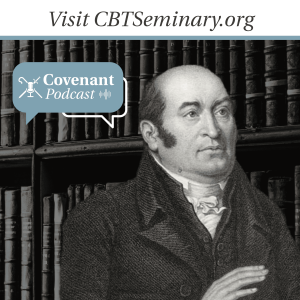
Thursday Apr 17, 2025
Robert Hall Jr. Letter to John Ryland Jr. | Particular Pilgrims
Thursday Apr 17, 2025
Thursday Apr 17, 2025
"One of the few original letters I possess from our Particular Baptist forebears is from Robert Hall Jr. to John Ryland. Robert was the youngest son of Robert Hall Sr. whose life we explored. Robert Jr. was blessed with unusual gifts and was one of the greatest preachers of the first half of the 1800s. Like his father, Robert was a Particular Baptist, but with peculiar views on a number of subjects. I expect we will examine his life at a later date. But know that he was constantly in demand to preach."
For more information, visit CBTSeminary.org
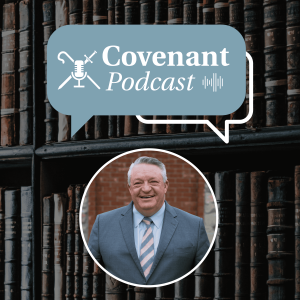
Tuesday Apr 15, 2025
Critiquing the New Perspective on Paul with Sam Waldron
Tuesday Apr 15, 2025
Tuesday Apr 15, 2025
In this episode, Sam Waldron contrasts the New Perspective on Paul with the historic Reformed understanding of Sola Fide.
Dr. Waldron references multiple resources authored by Jeff Smith and himself in this conversation. These resources can be found here:
https://drive.google.com/file/d/1JUIdshIzeXoeHhycsTPi320rdxLvu2Ex/view?usp=sharing
https://drive.google.com/file/d/1y0jY9PCCVa4zSDZomcIbfLBi1a3DmdFg/view?usp=sharing
For more information about CBTS visit: https://cbtseminary.org
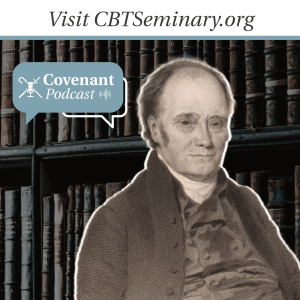
Thursday Apr 10, 2025
John Ryland Pt.3 | Particular Pilgrims
Thursday Apr 10, 2025
Thursday Apr 10, 2025
Now that we have begun to see the gifts of John Ryland and his growth in the grace of humility, it is time to tell more of his story. He spent 10 years helping his father in the school and church before his ordination to the pastoral office. During this time, he was frustrated in his inability to find a wife. And so he wrote to John Newton about it, who regularly responded with good counsel.
For more information, visit CBTSeminary.org
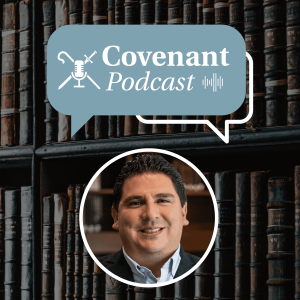
Tuesday Apr 08, 2025
CBTS en Español with Jorge Rodríguez Vega
Tuesday Apr 08, 2025
Tuesday Apr 08, 2025
"For almost a decade, CBTS has been involved in teaching ministry in Latin America through our affiliated seminaries. Currently, the Master of Arts in Reformed Baptist Studies program is offered in Colombia, Ecuador, Cuba, Brazil, Mexico, Costa Rica, and Chile. With our Spanish program, we aim to complement the training offered at our affiliated seminaries by offering a Master of Divinity (M.Div.) degree entirely in Spanish." -Jorge A. Rodríguez Vega
For more information about CBTS en Español, visit here: https://cbtsespanol.org/
For information about the upcoming Greek course taught my Dr. Timothy Decker, click here: https://cbtseminary.org/register/
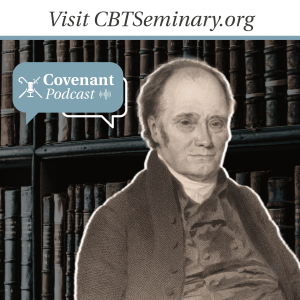
Wednesday Apr 02, 2025
John Ryland Pt.2 | Particular Pilgrims
Wednesday Apr 02, 2025
Wednesday Apr 02, 2025
As a young believer, John Ryland struggled with the ups and downs of doubts and assurance. At times, he despaired of being truly converted. He also knew times of considerable confidence thatChrist had saved him. His parents both ministered to his spiritual needs and a few months beforeage 15, his father baptized him, crying out, “Thanks be to God for this boy”. John said he neverforgot that sound and was much affected at the time by it. That same month, September, hejoined the church. Their records say, “September 11, 1767, aged 14 ¾” which probably shows theunusually young age of his membership.For more information, visit CBTSeminary.org
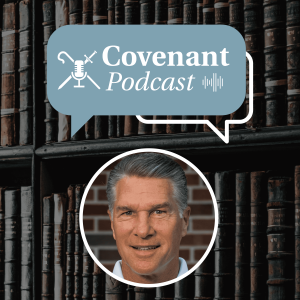
Tuesday Apr 01, 2025
Encouragement with Mark Chanski
Tuesday Apr 01, 2025
Tuesday Apr 01, 2025
In a crisis, the body’s burst of adrenaline can boost the average person’s physical abilities, so that a man is able to lift a car off a trapped bicyclist and a mother can fight off a polar bear threatening her son.
Author Mark Chanski makes the case that encouragement is able to do emotionally and psychologically for the soul what adrenaline does for the body. While Christians are sometimes reluctant to offer encouragement, we must do so in order to love our neighbors as ourselves. Building on the foundation of the gospel as the ultimate encouragement from God, the author—using quotations, historical references, illustrations, and examples—sets forth the Christian’s obligation to offer encouragement and then shows us how we can be encouraging in our families, in our churches, and in the world.
Get your copy of Mark's book here.
For more information about CBTSeminary, click here.


